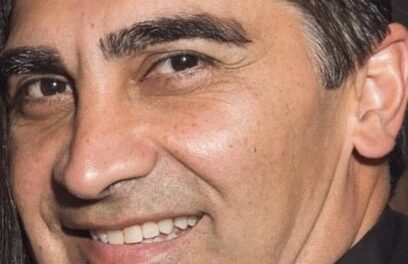Geriatric psychiatry is a broad medical specialty focused on mental and emotional disorders affecting adults over 65. Dr. Calvin Hirsch is a physician with a specialization in the field. He recently discussed the elements and basic history of geriatric psychiatry to help the elderly and their caretakers better understand and prevent certain mental disorders.
What Is Geriatric Psychiatry?
Geriatric psychiatry is a medical field focused on the psychological and biological elements of aging. It also assesses the effects of physical and mental illnesses in individuals as they age, especially beyond 65.
Geriatric psychiatrists like Dr. Calvin Hirsch specialize in preventing certain disorders and assessing and treating them when they occur.
History of Geriatric Psychiatry
The field of geriatric psychiatry is also known as the psychiatry of old age or psychogeriatrics. The Veteran’s Administration is accredited as the first institution to focus on mental disorders associated with old age.
Psychiatrists have always cared for older adults, but the specialty is one of the newer ones in the field. The very first Geriatric Research, Education, and Clinical Center opened in 1976. The first professorship in psychogeriatrics followed in 1977 at Cornell University. It wasn’t until 1991 that geriatric psychiatry exams were administered.
Geriatric Psychiatry Today
Geriatric psychiatry grew rapidly over the past several decades. Now, numerous universities have fellowship programs in psychogeriatrics. Americans are living longer, and there is an increased interest in maintaining mental health throughout the elderly years.
Mental Health Conditions Addresses in Geriatric Psychiatry
The field of geriatric psychiatry is broad. It includes but is not limited to anxiety, depression, mood disorders, dementia, delirium, substance abuse, personality disorders, sleep disorders, and more. The range of health conditions varies from mild to severe.
The geriatric years of life put humans at a greater risk of developing certain mental health disorders, like depression and dementia. Another significant concern for the elderly is Alzheimer’s Disease, which affects roughly 6 million people across the U.S.
Increased Need for Geriatric Psychiatrists
As the number of elderly Americans grows, the need for more geriatric psychiatrists does too. Unfortunately, there are not enough geriatric psychiatrists in the U.S. to meet the growing need. Dr. Calvin Hirsch and others in the field express the importance of adding geriatric psychiatry as a subspecialty in undergrad and graduate medical education programs.
Calvin Hirsch and Geriatric Psychology
Dr. Hirsch is a specialist in the field of psychogeriatrics. His expertise includes geriatrics, functional assessment, and general internal medicine. His medical education consists of studies at Yale University, the University of Connecticut School of Medicine, and Mt. Zion Hospital and Medical Center in San Francisco.
He also ran the successful UC Davis Geriatrics Clinic for 30 years and strongly believes in the importance of caring for our elders’ mental and physical health. He continues to carry the mantle of geriatrics education and clinical care today.




